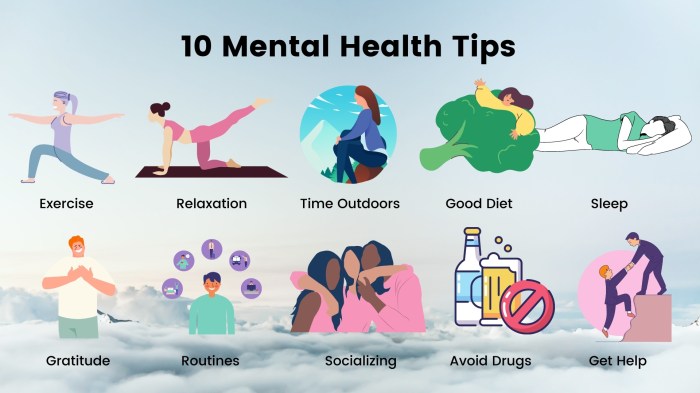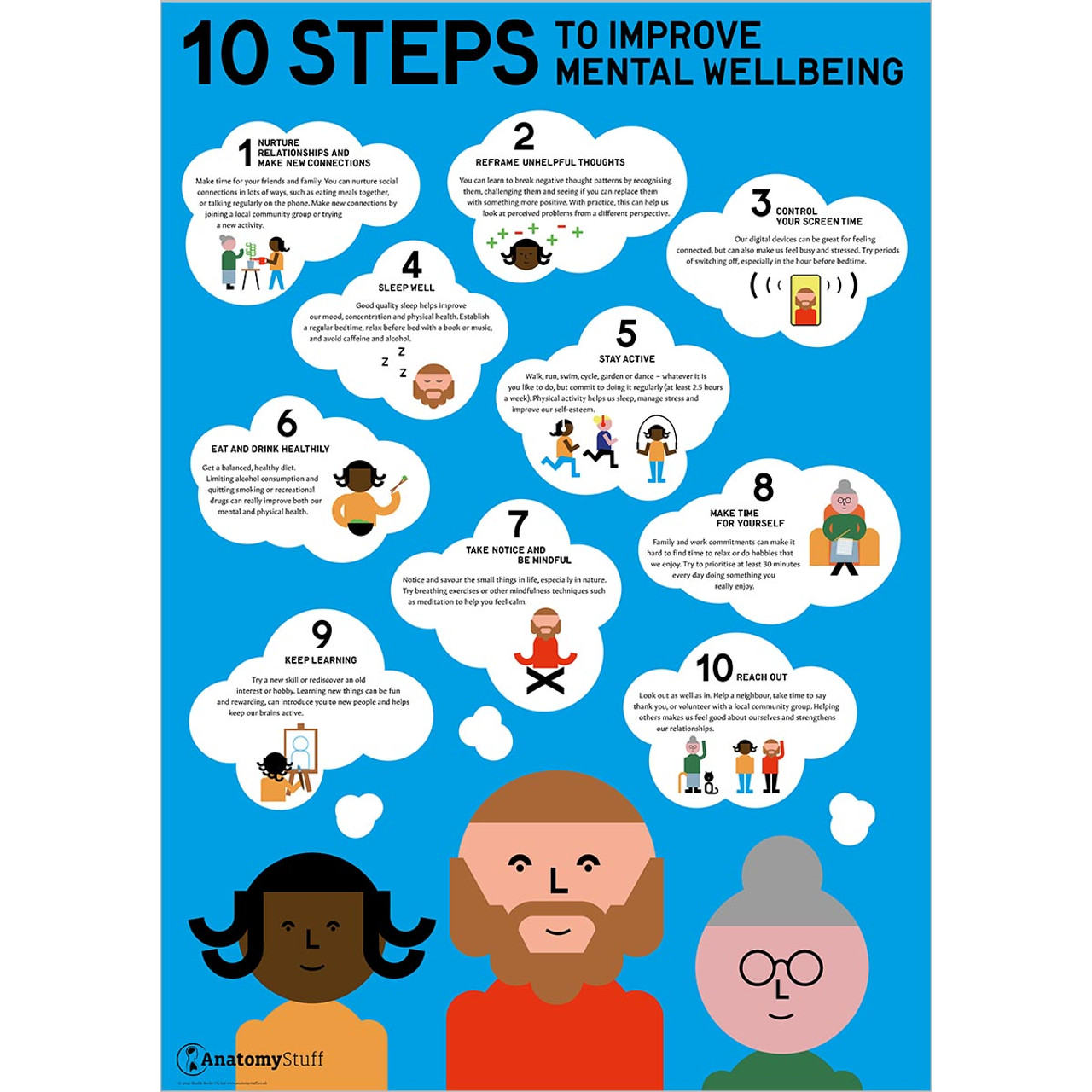Looking to level up your mental wellness game? Dive into our guide on Mental Wellness Tips, packed with practical strategies and healthy habits to keep you feeling your best. From stress management to self-care techniques, we’ve got you covered with all you need to know.
Importance of Mental Wellness

Maintaining mental wellness is crucial for overall well-being. It affects how we think, feel, and act on a daily basis. When we prioritize our mental health, we can better cope with stress, make healthier choices, and have more positive relationships.
Impact of Mental Wellness on Physical Health
Our mental wellness directly impacts our physical health. High levels of stress, anxiety, or depression can weaken the immune system, leading to a higher risk of illnesses and diseases. On the other hand, when we prioritize mental wellness through activities like mindfulness, exercise, and proper self-care, we can boost our immune system and overall physical health.
Examples of How Mental Wellness Can Improve Daily Life
- Increased Productivity: When we take care of our mental health, we can focus better, stay motivated, and accomplish tasks more efficiently.
- Better Relationships: By managing our emotions and stress levels, we can communicate effectively, resolve conflicts, and build stronger connections with others.
- Improved Sleep: Prioritizing mental wellness can lead to better sleep quality, helping us feel more rested and energized throughout the day.
Strategies for Maintaining Mental Wellness
In today’s fast-paced world, it’s important to prioritize our mental wellness. Here are some practical tips to help you manage stress effectively, benefit from mindfulness and meditation practices, and promote positive thinking and self-care.
Managing Stress Effectively
- Practice deep breathing exercises to calm your mind and body.
- Engage in regular physical activity to release endorphins and reduce stress levels.
- Set realistic goals and prioritize tasks to avoid feeling overwhelmed.
- Establish healthy boundaries and learn to say no when needed.
Benefits of Mindfulness and Meditation Practices
- Improve focus and concentration by practicing mindfulness regularly.
- Reduce anxiety and enhance emotional well-being through meditation.
- Promote self-awareness and acceptance by being present in the moment.
Promoting Positive Thinking and Self-Care
- Acknowledge and challenge negative thoughts to cultivate a more positive mindset.
- Practice gratitude daily by reflecting on things you’re thankful for.
- Engage in activities that bring you joy and relaxation, such as hobbies or spending time with loved ones.
Healthy Habits for Mental Wellness: Mental Wellness Tips
Regular exercise plays a crucial role in boosting mental health by releasing endorphins, reducing stress, and improving mood.
The Role of Exercise in Boosting Mental Health
- Exercise helps in releasing endorphins, also known as the “feel-good” hormones, which can reduce feelings of anxiety and depression.
- Physical activity can act as a stress reliever, allowing individuals to clear their minds and focus on the present moment.
- Regular exercise has been linked to improved self-esteem and cognitive function, contributing to overall mental well-being.
Importance of a Balanced Diet for Mental Well-being, Mental Wellness Tips
- A balanced diet provides essential nutrients that support brain function and help regulate mood.
- Foods rich in omega-3 fatty acids, such as fish, nuts, and seeds, have been associated with lower rates of depression and anxiety.
- Avoiding processed foods and excessive sugar intake can help stabilize energy levels and prevent mood swings.
Significance of Quality Sleep in Maintaining Mental Wellness
- Adequate sleep is crucial for cognitive function, emotional regulation, and overall mental well-being.
- Quality sleep allows the brain to consolidate memories, process emotions, and repair cell damage.
- Chronic sleep deprivation can lead to mood disorders, increased stress levels, and impaired decision-making abilities.
Seeking Professional Help

Seeking help from a mental health professional is essential when experiencing persistent feelings of sadness, anxiety, or other mental health concerns that interfere with daily life. It’s important to reach out for support to address these issues effectively.
Types of Therapy Options
- Cognitive Behavioral Therapy (CBT): Focuses on identifying and changing negative thought patterns and behaviors.
- Psychotherapy: Involves talking with a therapist to explore thoughts, feelings, and behaviors in a safe and supportive environment.
- Medication Management: Involves prescribing and monitoring medications to treat mental health conditions.
Finding the Right Therapist
- Ask for Recommendations: Seek referrals from trusted sources such as friends, family, or healthcare providers.
- Research Credentials: Look for licensed therapists with experience in treating your specific concerns.
- Consider Therapy Style: Find a therapist whose approach aligns with your preferences, whether it’s more structured or more open-ended.
- Trust Your Instincts: Pay attention to how comfortable you feel with the therapist during your initial sessions.
